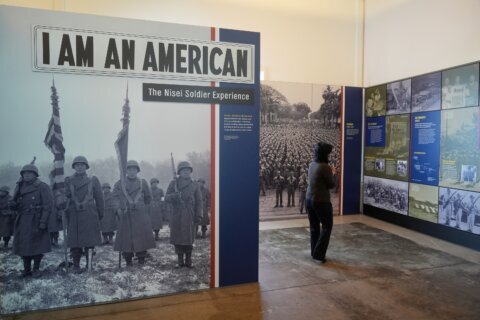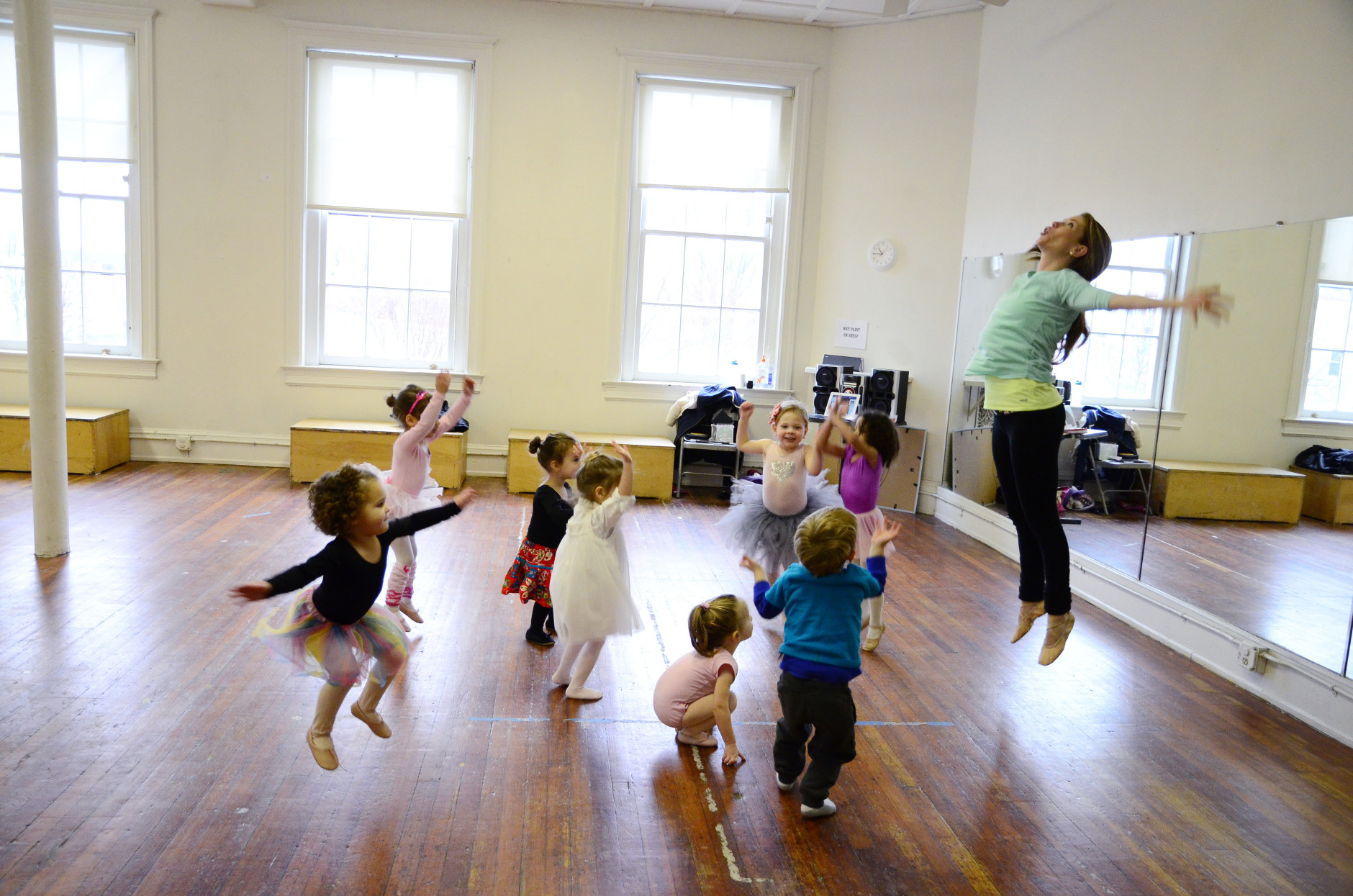
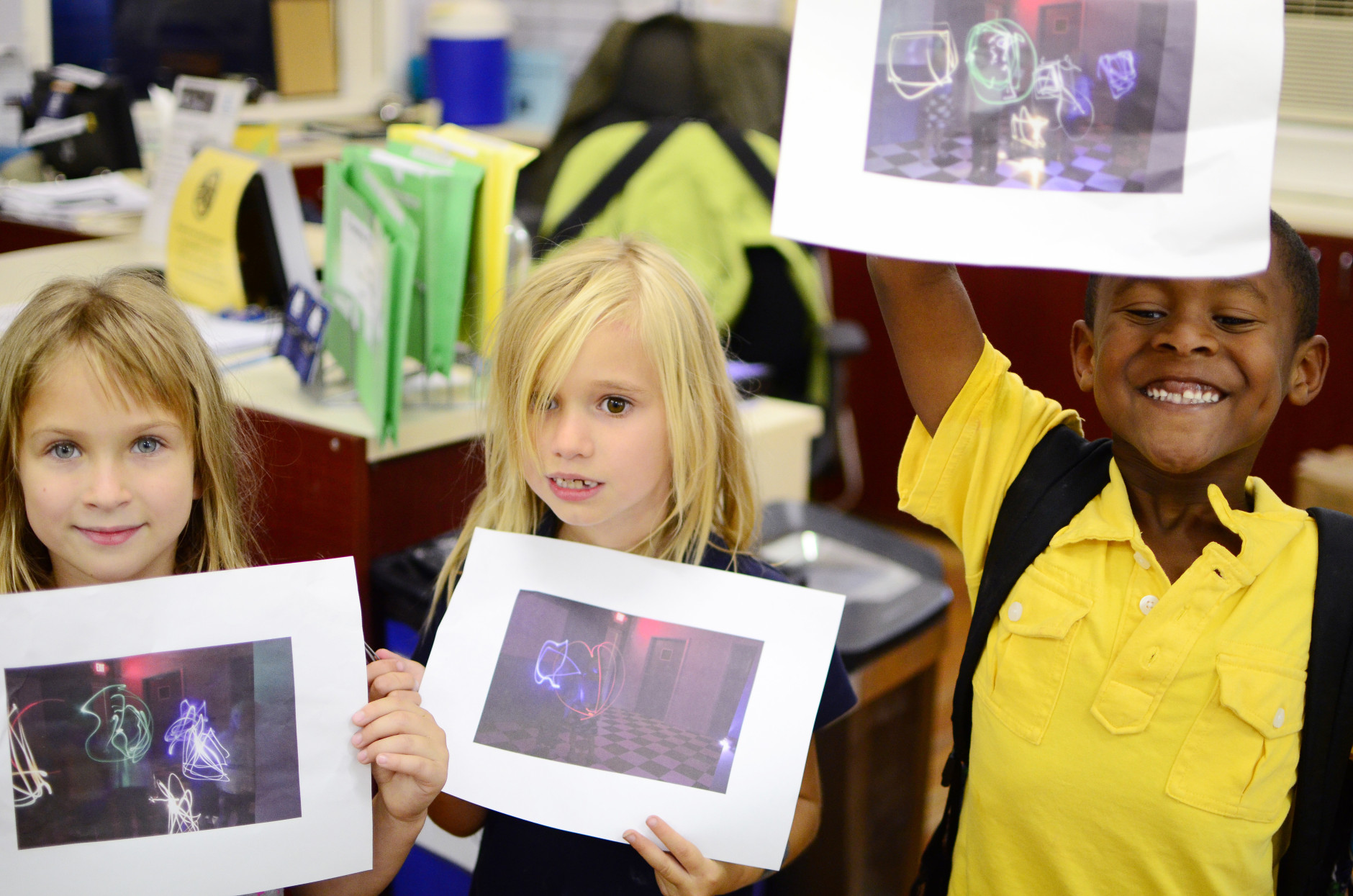
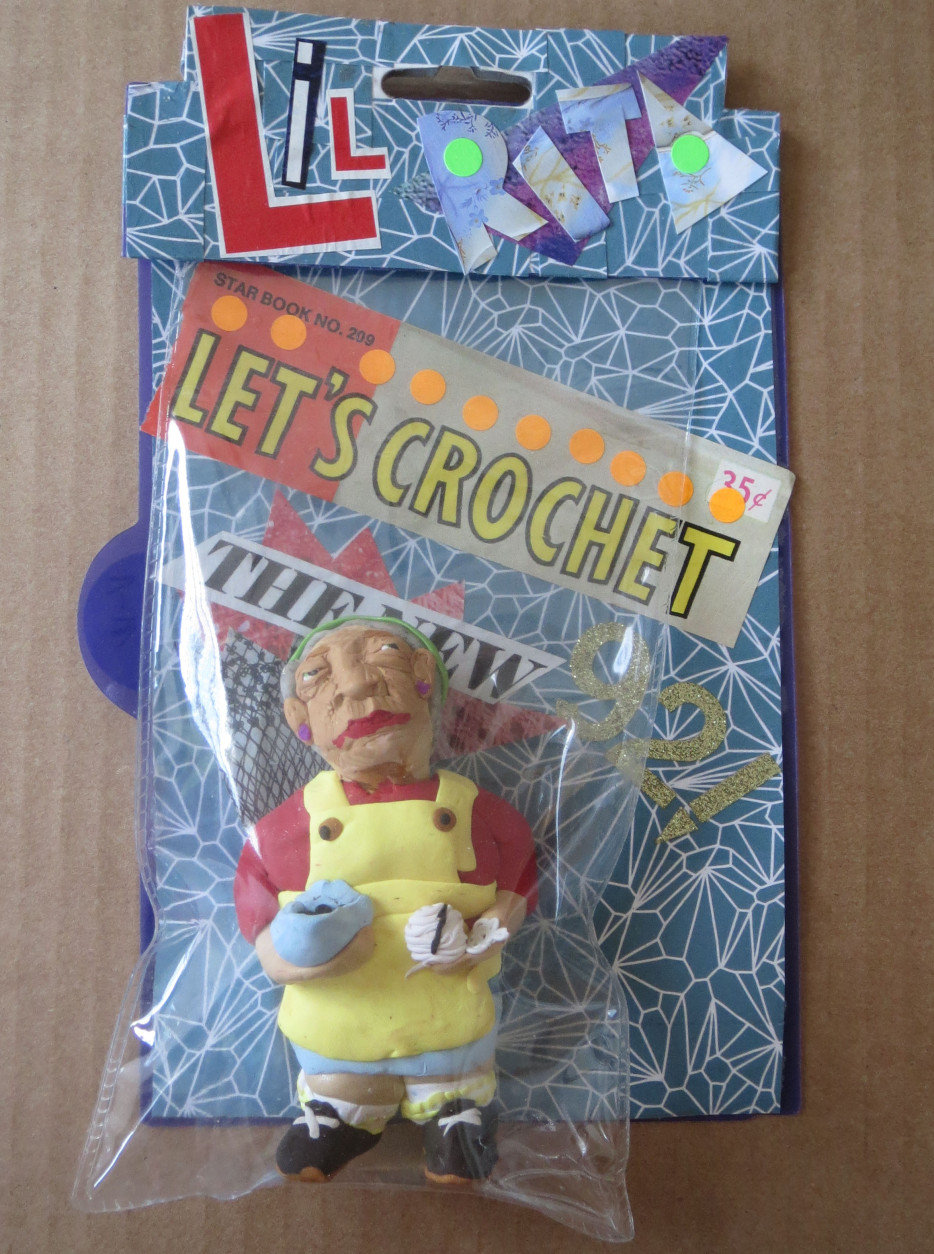
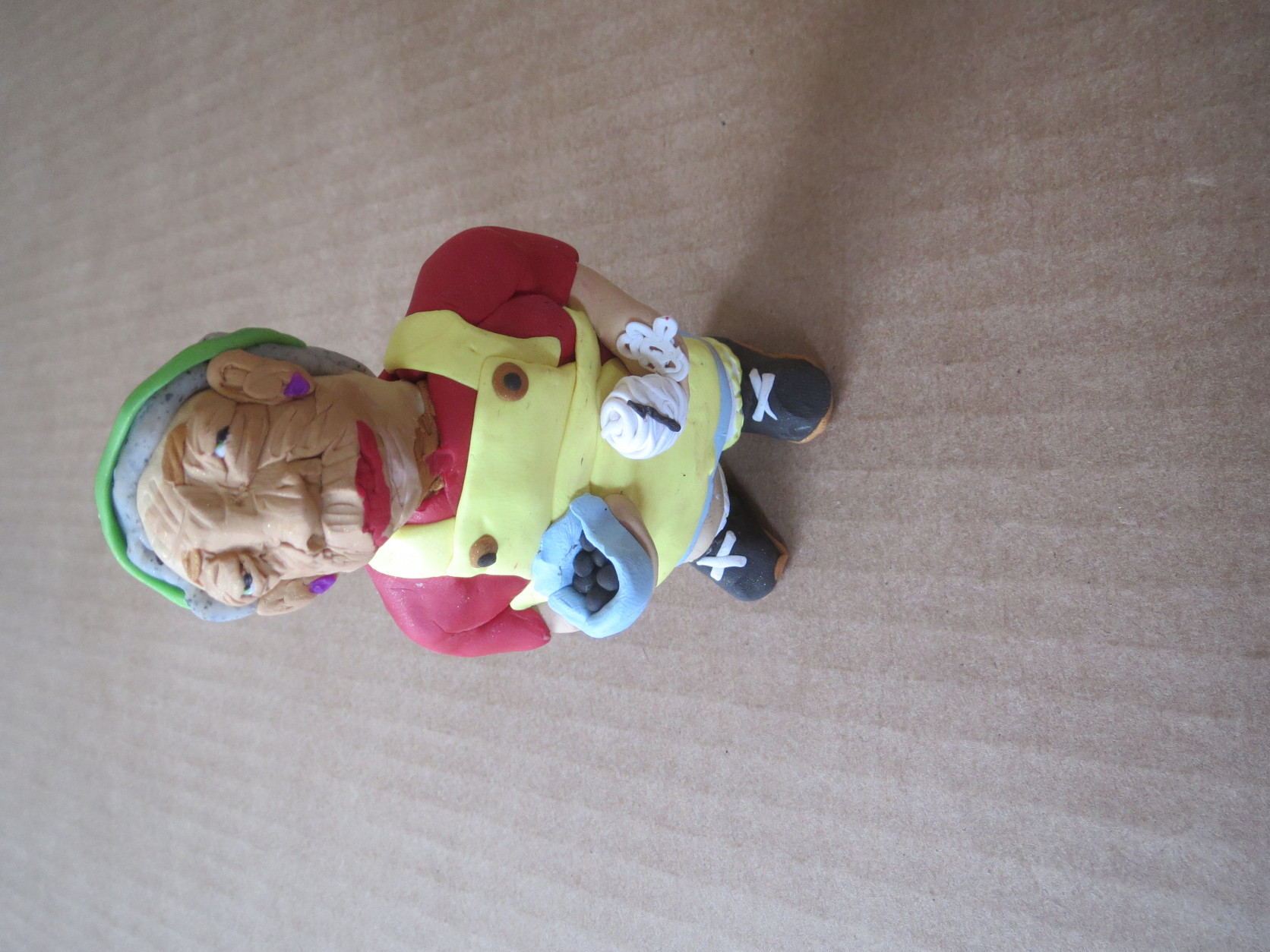
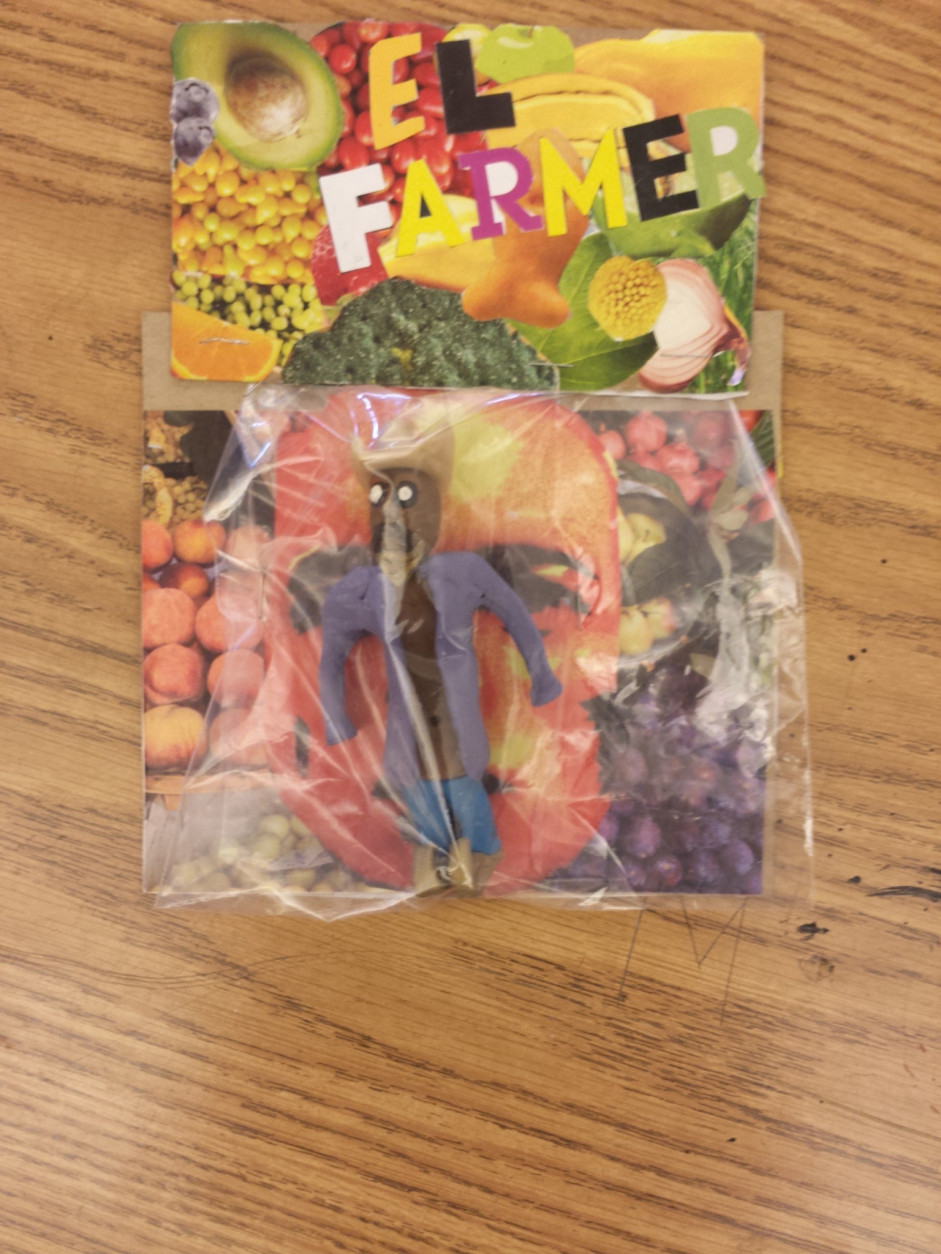
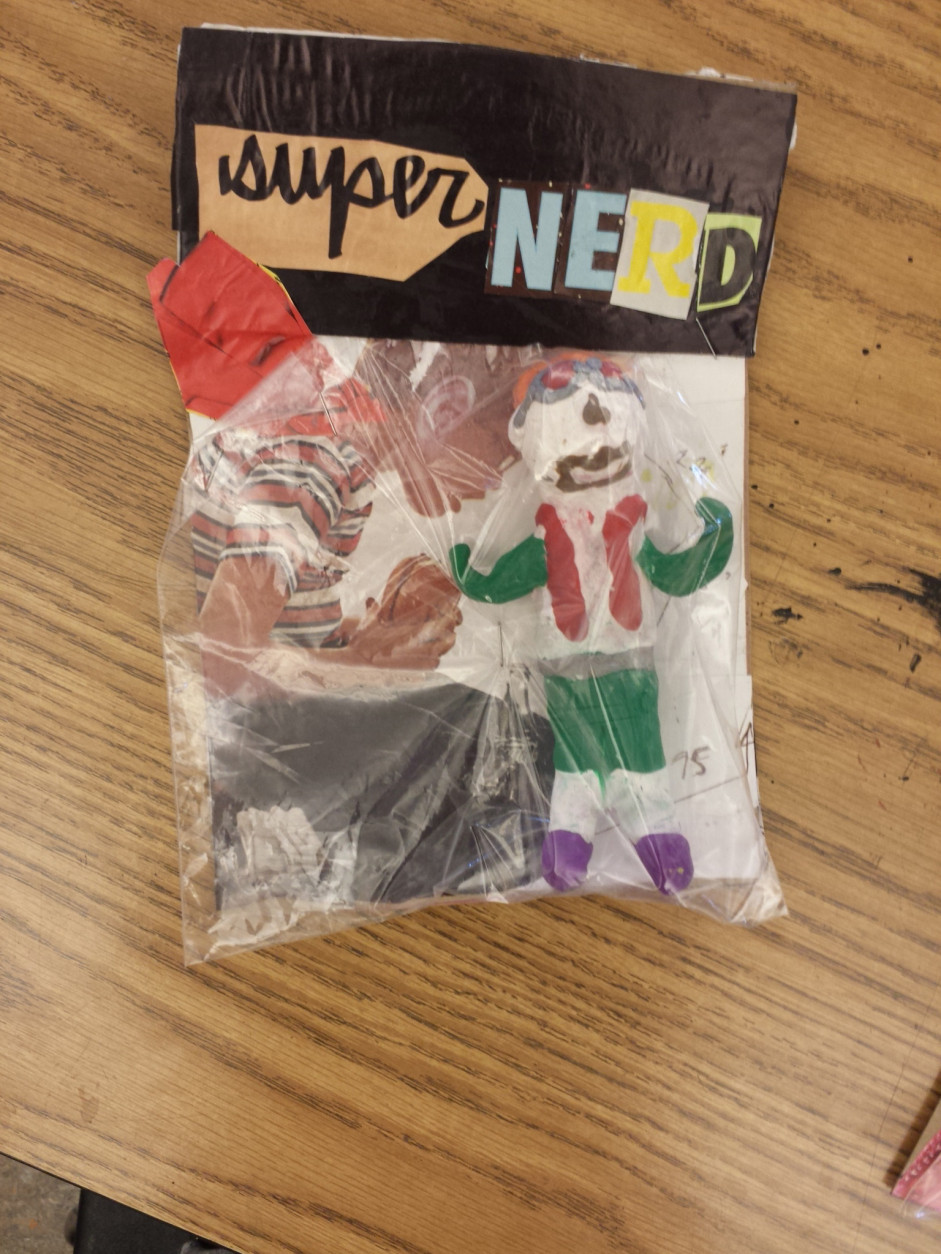
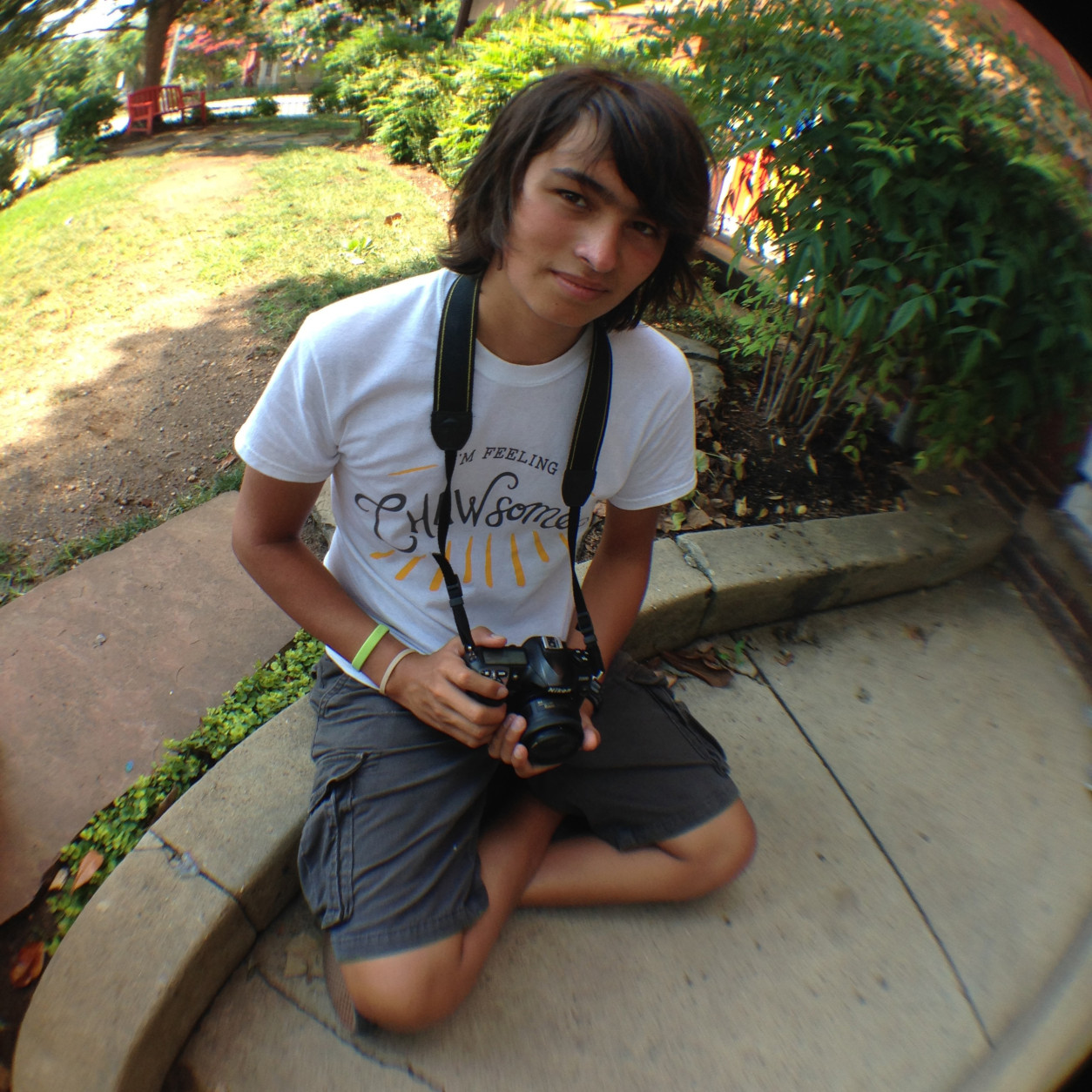
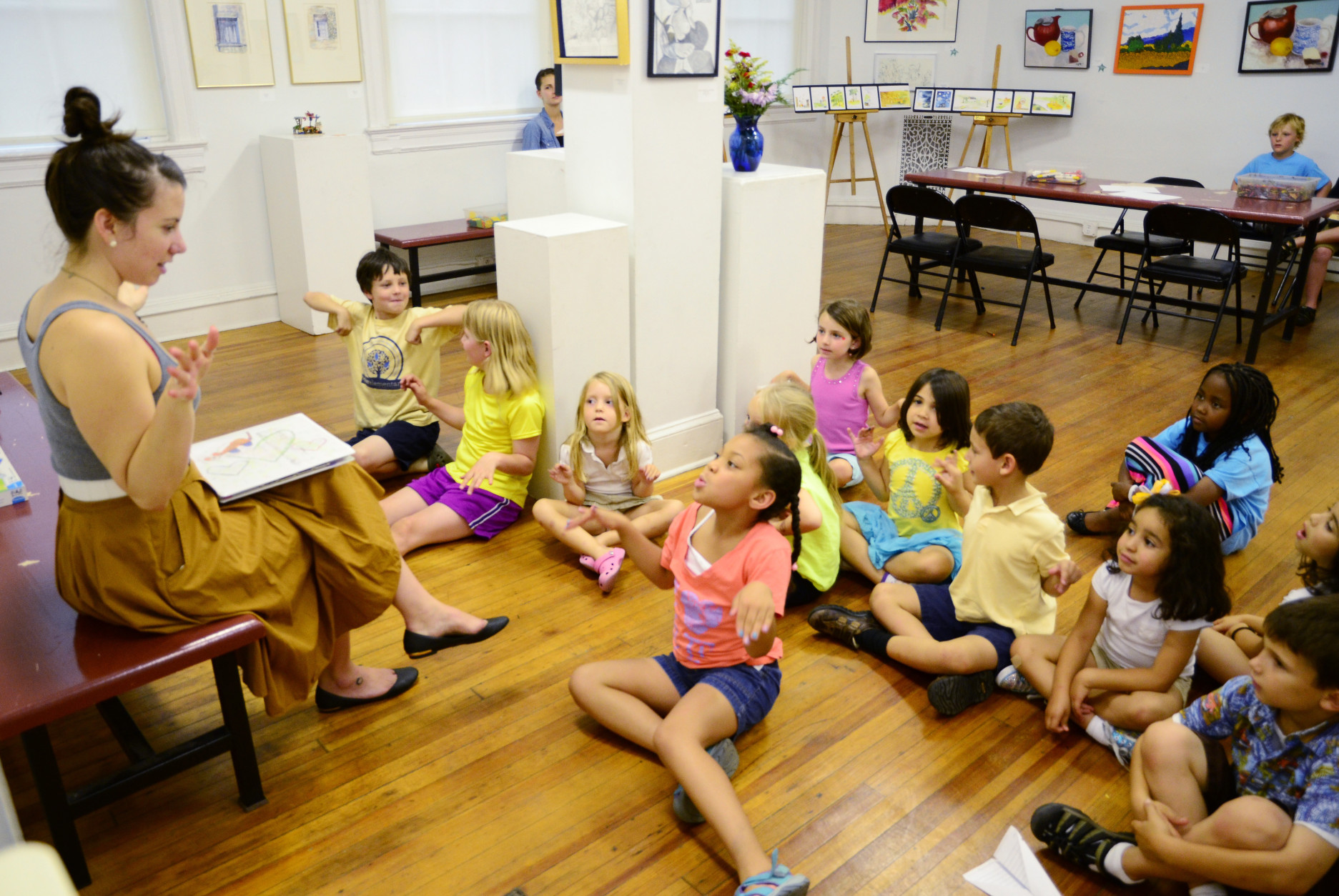
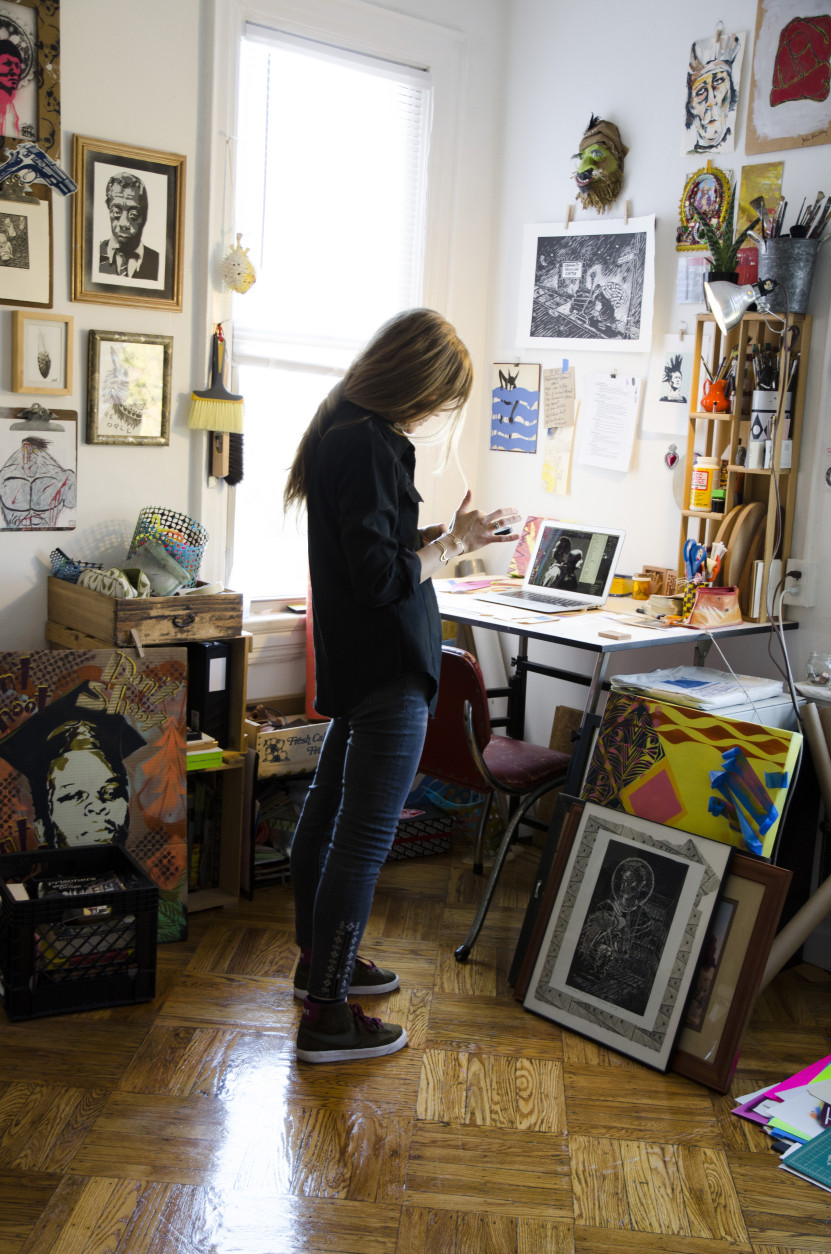
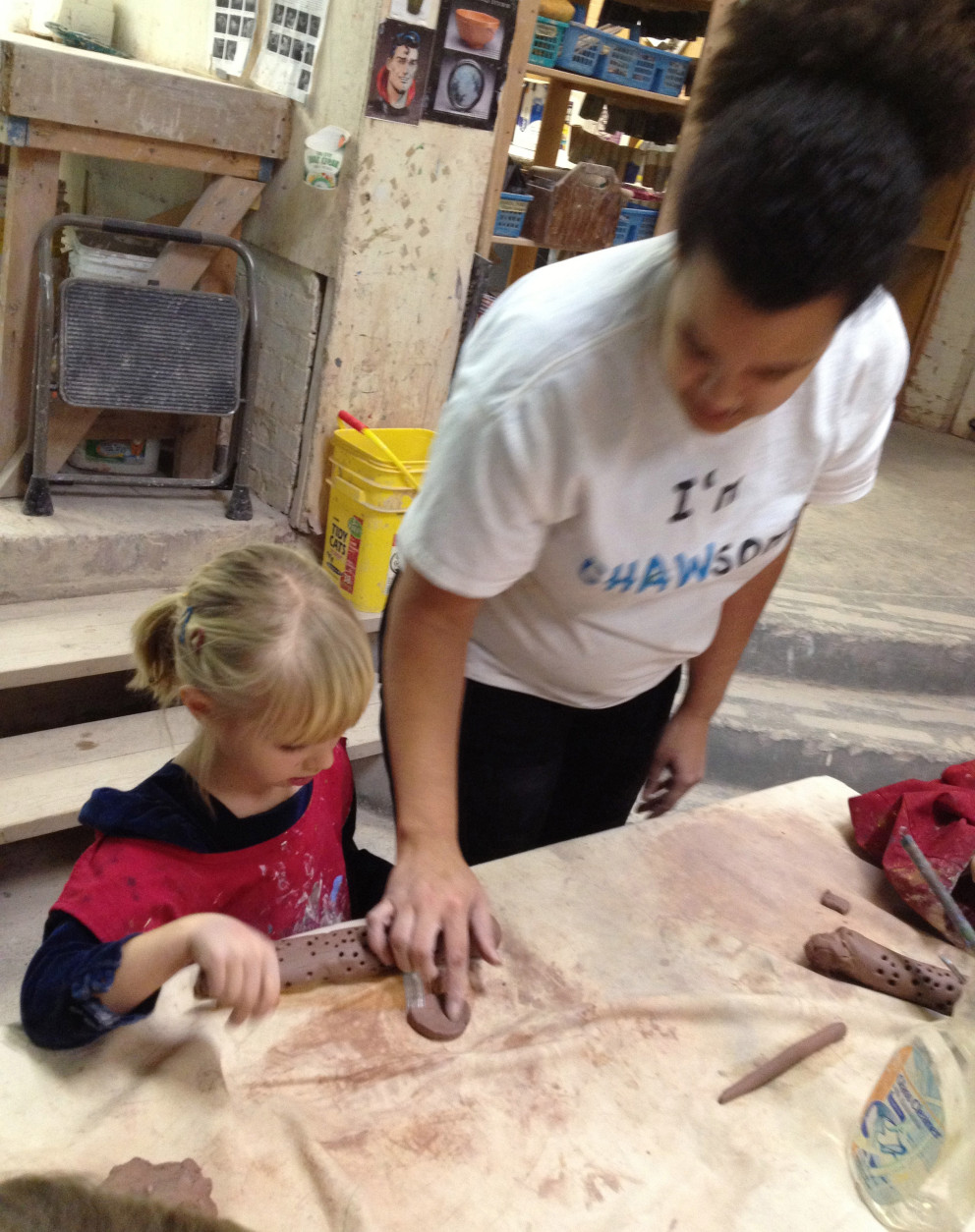
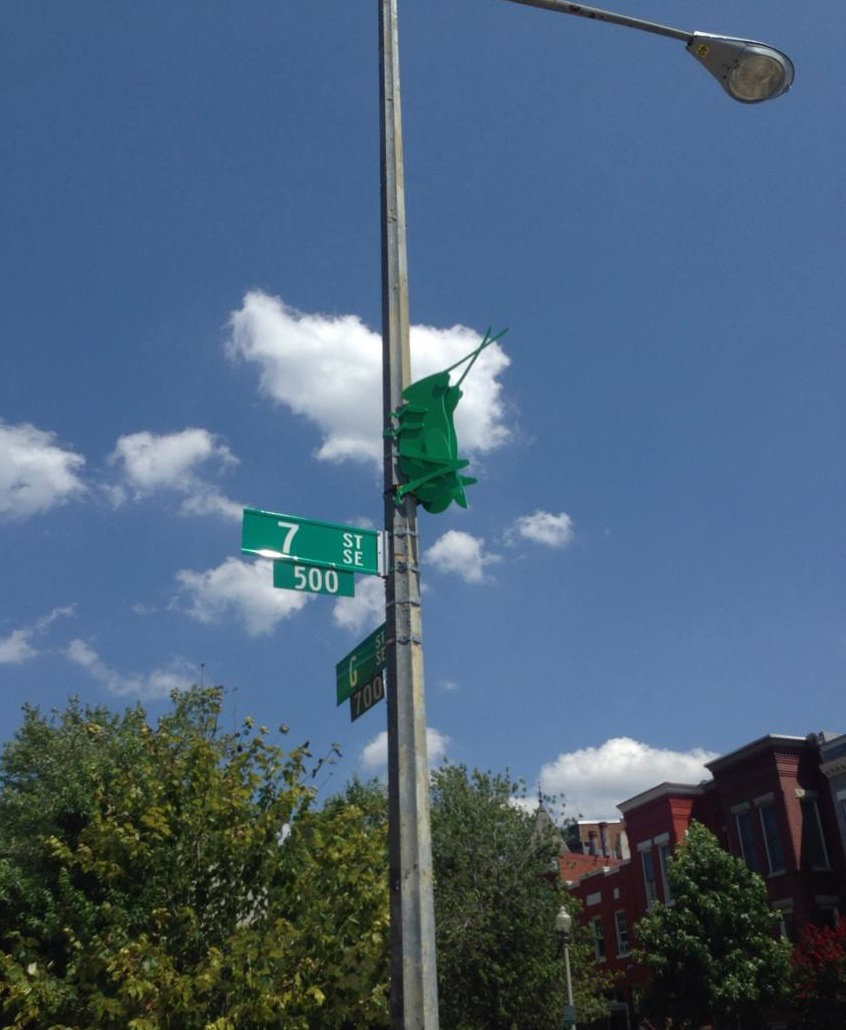
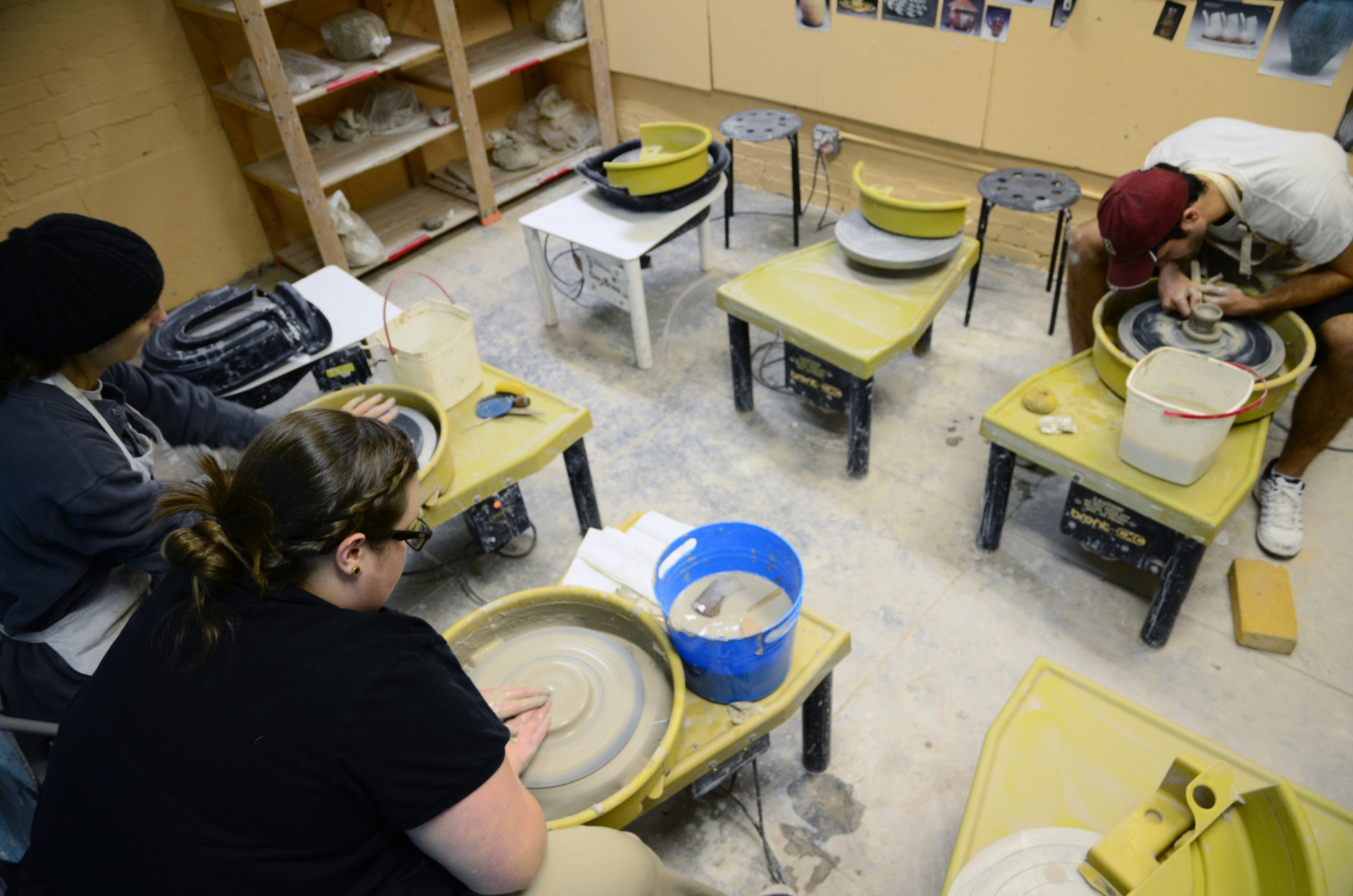
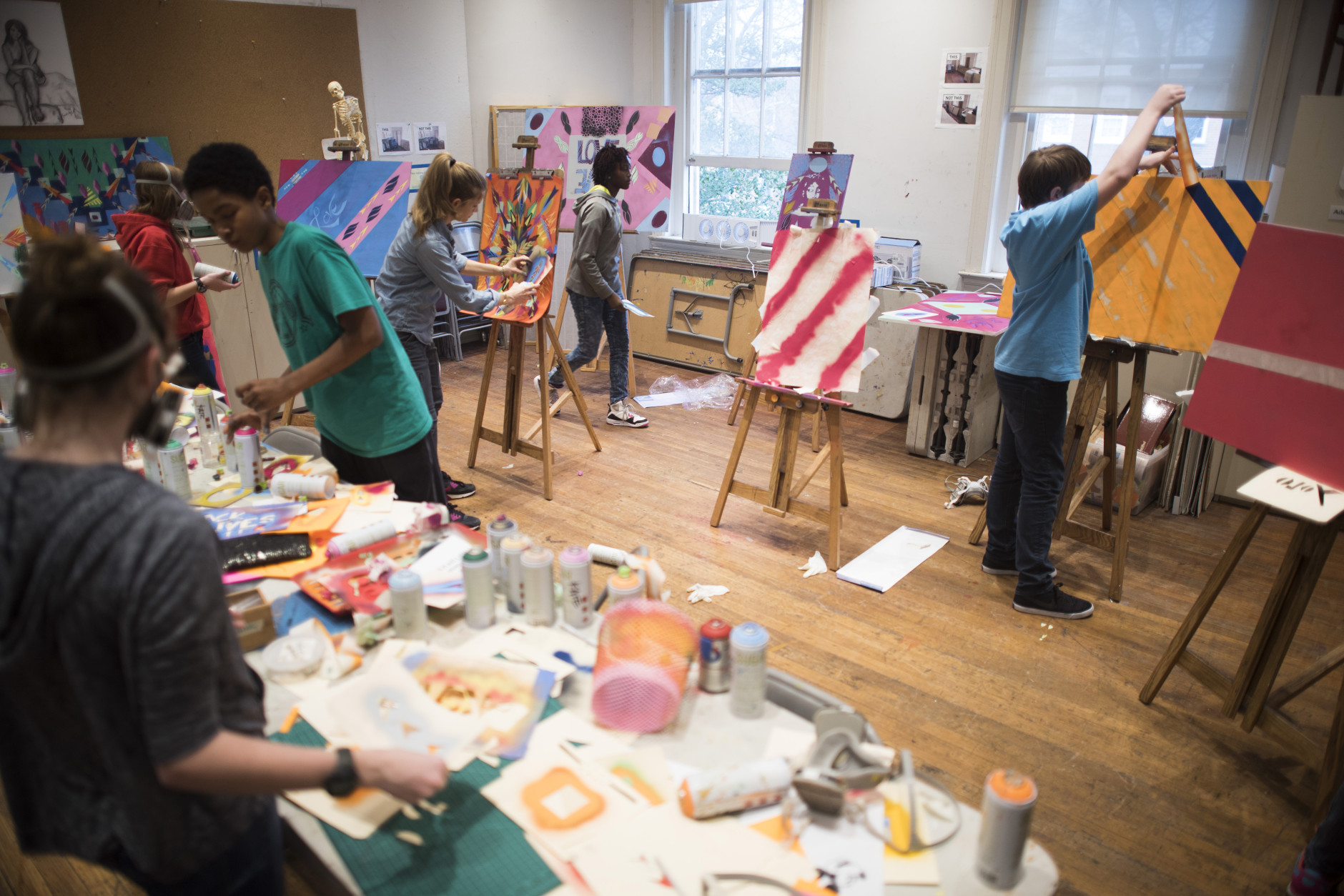
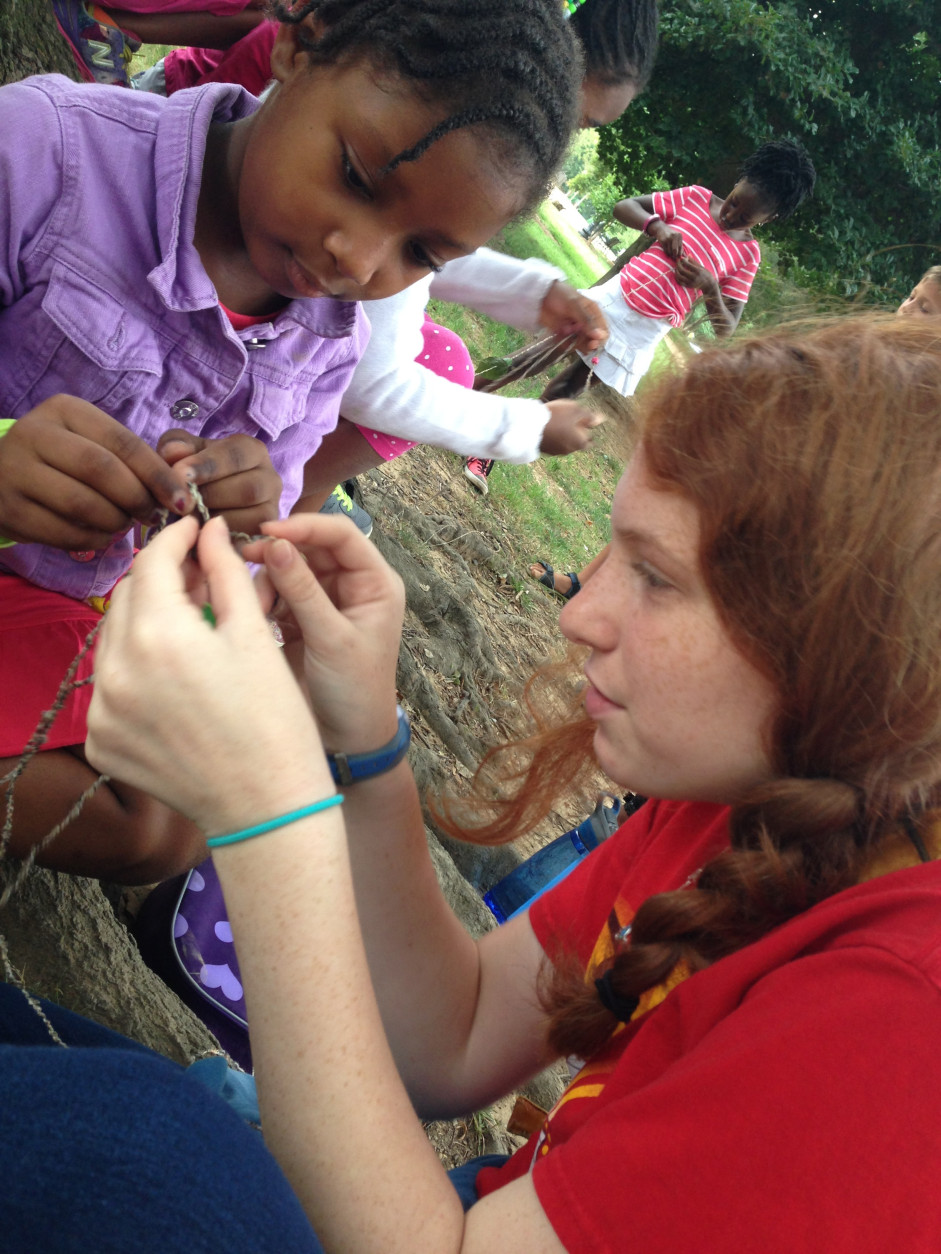
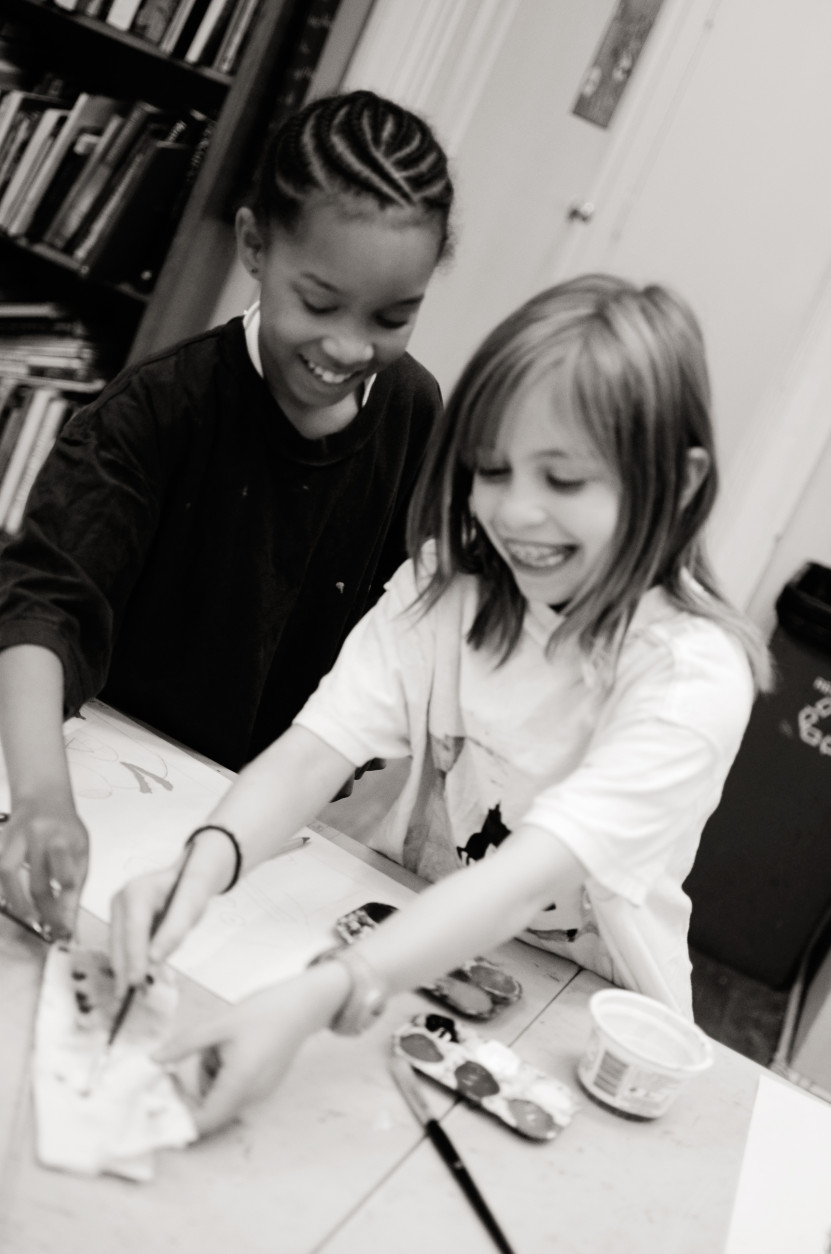
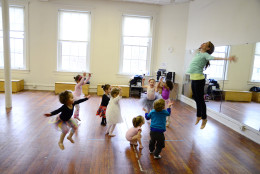
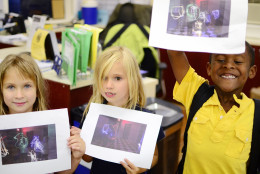
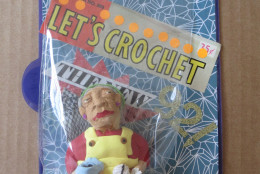
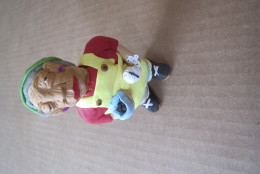
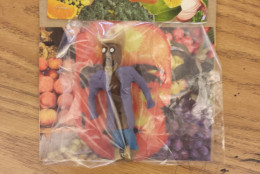
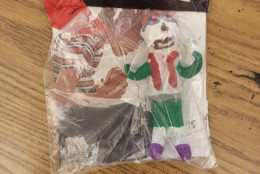
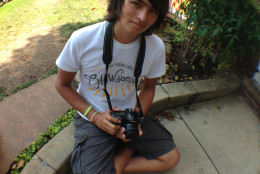
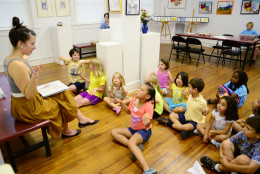
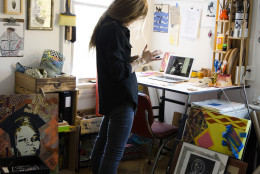
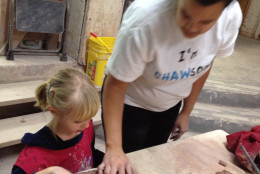
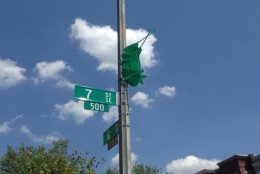
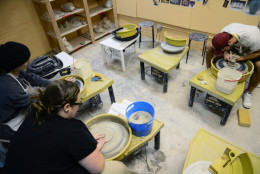
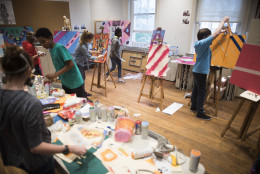
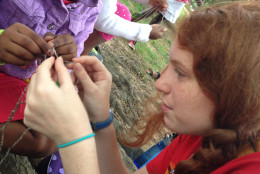
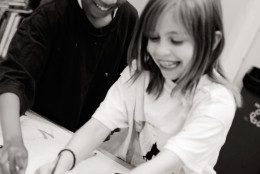
WASHINGTON — On any given day, three blocks south of the Eastern Market Metro, an old schoolhouse is alive with color and music.
Located in the old B.B. French School, the Capitol Hill Arts Workshop has served the D.C. community for 43 years. Once teaching classes in churches, D.C. agreed to give the nonprofit use of the school in the 1970s. Now, the workshop is bustling with classes for all ages, from dance and creative writing to ceramics and photography.
“This neighborhood has changed drastically and significantly over the last 20 years. Like much of D.C., it has become much more gentrified. So that makes us feel like we have an even more important role to play in bringing together different communities here in our building. And we have a strong commitment to maintaining that true diversity of speaking to our neighborhood and, as that neighborhood needs, to broaden out. So we too try to broaden out and make sure our doors are always open,” says Hannah Jacobson, director of marketing at Capitol Hill Arts Workshop.
As part of its mission, Jacobson says the workshop never turns away children and even offers financial aid for adults who want to become involved.
The Space
Being part of D.C. since the 70s, CHAW’s community involvement reaches beyond the brick schoolhouse’s doors and past the funky, painted columns greeting visitors at the entrance.
For the last few years, CHAW has brought together the Capitol Hill Alphabet Animal Arts project. Ten area artists are commissioned to make an animal that matches with a street sign in the Eastern Market area.
Outside CHAW, a grasshopper by artist Carolina Mayorga is perched on the G Street sign. In a contest last year, he was affectionately named CHAWmper.
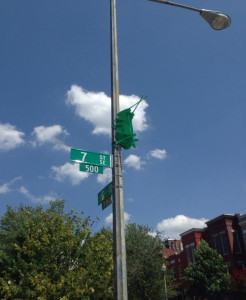
Further through the area, an emu rests on E Street, a dog on G and a spider right by the Metro station on South Carolina Avenue.
Back inside the upgraded schoolhouse, an art gallery to the left remains a permanent space for rotating shows. Occasionally, like on June 13, student artwork will go on display.
To the right, the Black Box Theater, named the best space for cheap theater in D.C. by the DCist, houses several rotating theater companies. Taffety Punk Theatre Company is CHAW’s resident company, but others, including dog & pony dc, regularly use the space.
Downstairs, one of the only running darkrooms in D.C. is available for rental along with digital photography facilities and music rooms. All the way upstairs, visitors will see a light and mirror-filled dance studio along with music and art rooms.
And the atmosphere at CHAW is typically anything but quiet.
“It is a really fun thing to walk in here, be looking at a gallery show and hearing ‘A Second Wind,’ which is the senior choir that rehearses here on Wednesdays, or you can be downstairs in the darkroom and you’ll hear the kids gathering for community time up here,” says Jacobson.
But, she says, CHAW does make arrangements for noise when performances are scheduled.
“We have an amazing operations and safety team so of course when we have a show going in the theater we do not have our Tiny Tots tappers tapping away right above them, sounding like thunder.”
Class Snapshot
While there are many traditional arts classes for dance and painting, CHAW also offers classes that not only encourage students to create, but are creative in and of themselves. One such class is Kate Deciccio’s “Unlikely Action Heroes- Adult Mixed Media Workshop.”
Deciccio, who used to teach inmates managing mental health issues in San Quentin Prison, hopes the class fosters discussion about society.
“The Unlikely Action Heroes idea came after considering the values projected on kids via the heroes and villains in cartoons and action figures. I thought it’d be super fun to critique this propaganda by providing the opportunity to highlight the qualities we identify with everyday heroism by reformatting the action figure into an art project celebrating grandmas, trash collectors, teachers, single dads, migrant workers and more,” says Deciccio, who first taught the class to teenagers.
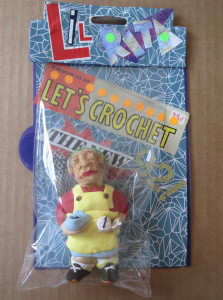
“As a teacher, you’re always searching for how to stimulate thoughtful art-making in a way that is novel and challenges students to critique social norms and accepted values.”
As an example, Deciccio points to an unlikely hero she made. The small figure wears a yellow apron and holds knitting yarn. Her packaging, which Deciccio also teaches students how to make, calls her “Lil Rita.” It’s an homage to the real Rita, a now 93-year-old Nicaraguan woman with whom Deciccio is close.
“She completely embodies the ‘I don’t give a F, I’m old’ mixed with complete sweetness and unreal crochet and cooking skills. Being her friend has been a complete gift to my life and allowed me to realize how we don’t really change that much with age.”
Outside of her Unlikely Heroes classes, Jacobson says Deciccio is a gift to CHAW in the ways she reaches children, including in one of her recycled arts classes.
“She is truly focused on really high-quality art products but also on empowering students to learn how to find that in their own lives, which I think is a really exciting way of thinking about the arts and how they can become more a part of our lives rather than something extra or on top of.”
Spots for the Saturday, May 23 “Unlikely Heroes” class are still available. Click here for more information.
The Mission
While Jacobson stresses that CHAW is for all ages and backgrounds, she says the middle school program is one that’s especially important.
“We feel that this is an age where we often forget that they also need creative outlets. In fact even more than others as they’re in the midst of that real identity shaping process. Using the arts (is a way) to really help them find and use that voice.”
This is part of the reason CHAW never turns away children. But, while CHAW does take in money from classes, it provides a significant amount of tuition assistance every year. In fact, it’s provided $125,000 to students throughout the last two years.
The workshop is currently running its annual Paint Bucket fundraiser, through which it hopes to raise $65,000 in 65 days.
The funding helps CHAW keep its doors open, and gives students a place to experience art. During the summer, the workshop also offers summer camps and programs for children of all ages
Social justice and community are running themes for CHAW, according to Jacobson, but that doesn’t mean the workshop shies away from building skills. The classes are taught by professional — and often working — artists.
“We truly hope to be a place where it feels welcoming to walk through these doors, even for people who are unfamiliar with the arts or think they’re not creative,” says Jacobson.
“The whole idea here really is an artful way of thinking about arts as a way of life for an entire lifetime. That (arts) become a part of us and help us to grow, become more confident, more creative and create a better community.”

